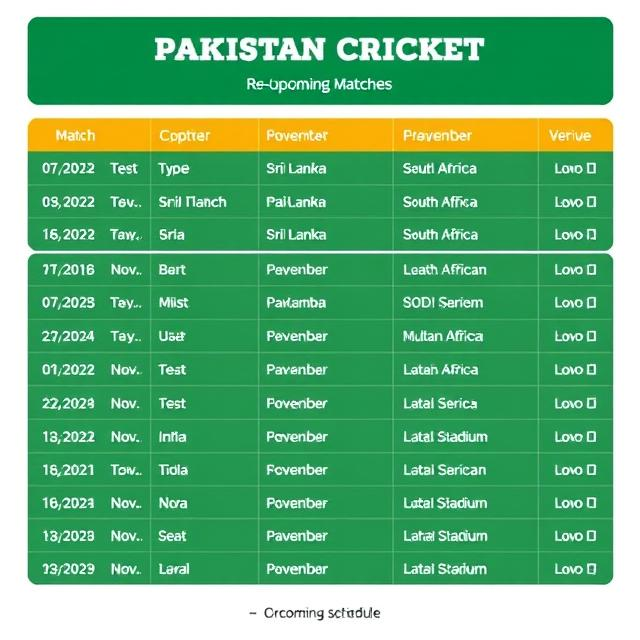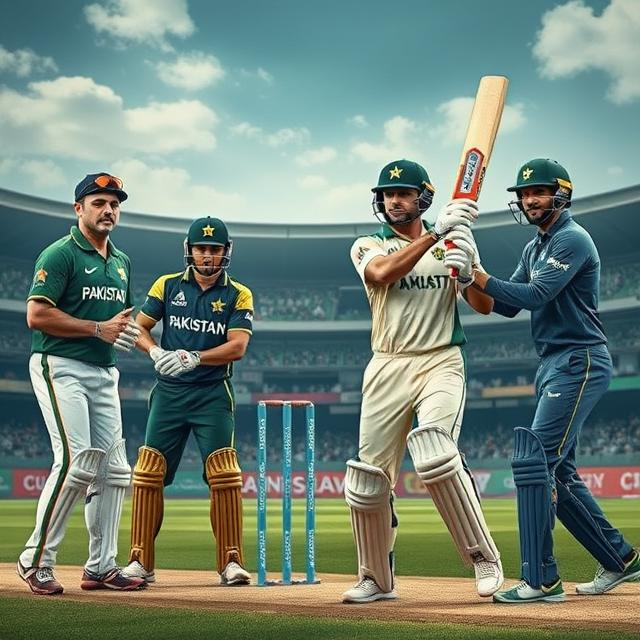Pakistan Cricket Team Head Coaches: A Journey Through Leadership
Pakistan Cricket Team Head Coaches: A Journey Through Leadership
From iconic victories to challenging setbacks, the Pakistan cricket team’s journey has been shaped significantly by the leadership of its head coaches. This article delves deep into the fascinating history of these coaches, highlighting their roles in shaping the team’s fortunes and exploring the complexities of their contributions. We’ll uncover the key moments, strategies, and lasting impacts of each individual.
The role of a head coach in international cricket is multifaceted, demanding not just tactical acumen but also the ability to motivate players, manage egos, and navigate the intricate pressures of high-stakes competition. This article explores the diverse styles and approaches of Pakistan’s head coaches throughout their history, examining the successes and failures that have defined their tenures.
A Legacy of Leadership: Early Years
Pakistan cricket’s early years were marked by a desire for growth and consistent success. Early coaches, often pioneers in their own right, laid the foundation for the modern-day team. Their roles were critical in developing the talent pool and laying the groundwork for future achievements. While specific details on every coach from those eras might be scarce, their efforts contributed to the team’s evolving identity on the international stage. We look at some of the early influences and their contribution to the development of Pakistan’s cricketing infrastructure.

Early Coach Name (Approximate Years):
A brief description of their tenure, focusing on the cricketing context of the time and their role in shaping the team’s early trajectory.
The Rise to Prominence: Mid-20th Century and Beyond
As Pakistan cricket gained international recognition, the need for experienced and strategic leadership became increasingly crucial. This era saw the emergence of coaches with innovative ideas, transforming the way the team approached the game. Several of these coaches brought a distinct philosophy to the table, impacting the players’ skill development and team dynamics. These changes have left a lasting impression on the culture of Pakistani cricket.

Mid-20th Century Coach Name (Years):
Highlighting significant achievements during their tenure. Did their strategies resonate with the players? What were some of the key challenges they faced?
Modern Era Leaders: Navigating the Challenges
Pakistan cricket in the 21st century has faced a mix of exhilarating successes and frustrating setbacks. Coaches during this era have been tasked with tackling a range of issues – from player motivation and management to adapting to ever-evolving cricketing trends. Understanding the context surrounding these coaches – the evolving nature of the game and the expectations placed upon Pakistan cricket at the time – is essential to evaluating their performance.

Modern Coach Name (Years):
Detailing their notable achievements, including major wins, and setbacks, emphasizing the tactical strategies employed during their time. How did they manage the pressure of the global cricketing arena? What strategies worked and which didn’t, and why?
A Deeper Dive: Analyzing Performance and Impact
This section goes into the specific nuances of coach-player dynamics, tactical innovation, and psychological approaches used by each coach. We examine the strengths and weaknesses of each tenure through statistical analysis, player feedback (where available), and a close study of their approach to team building.
Pakistan’s head coaches have come from various backgrounds and with diverse approaches to coaching. This diversity and the evolution of coaching methods have shaped the trajectory of the team’s progress. Delving deeper into the coach’s background and their previous experiences will help contextualize their approach to player management and team strategy.
The Future of Coaching: Shaping the Next Generation
Looking ahead, we consider the current landscape of coaching in Pakistan cricket and the aspirations for the future. What qualities and approaches will future coaches need to excel in this dynamic environment? Are there lessons to be learned from past successes and failures?
Pakistan cricket has a rich history of talent, and the ongoing debate surrounding the role of coaches in shaping a team’s future promises to be an evolving discussion. Identifying the key attributes for future coaches – leadership, adaptability, and a strategic approach – is crucial to navigating the complexities of the game.
Conclusion
The journey of Pakistan’s head coaches mirrors the team’s own fluctuating fortunes. By understanding the challenges faced and the approaches employed by these leaders, we gain a richer appreciation for the complexities of high-performance sport. Each tenure, from the formative years to the modern era, holds valuable insights into how leadership can shape success on the field. This article aims to provide a nuanced look at these contributions, facilitating a deeper understanding of Pakistan cricket’s past, present, and future.
This in-depth exploration offers a multifaceted view of Pakistan cricket’s journey, illuminating the pivotal role of head coaches in shaping its fortunes throughout history.